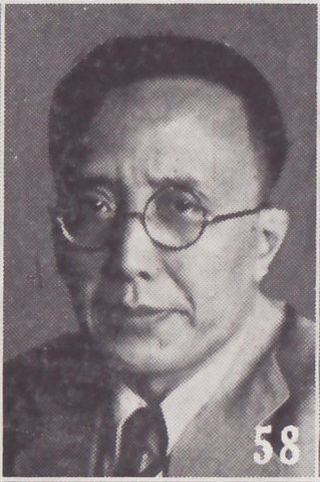
Guo Moruo, courtesy name Dingtang (鼎堂), was a Chinese author, poet, historian, archaeologist, and government official.
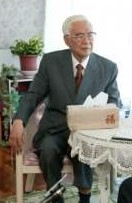
Bo Yang, sometimes also erroneously called Bai Yang, was a Chinese historian, novelist, philosopher, poet, and politician based in Taiwan. He is also regarded as a social critic. His best-known work is The Ugly Chinaman, a controversial book that was banned in Mainland China, in it he harshly criticized Chinese culture and the national character of Chinese people. According to his own memoir, the exact date of his birthday was unknown even to himself. He later adopted 7 March, the date of his 1968 imprisonment, as his birthday.
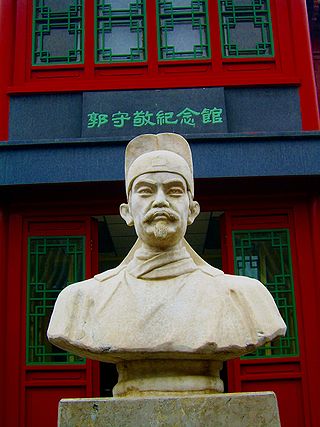
Guo Shoujing, courtesy name Ruosi (若思), was a Chinese astronomer, hydraulic engineer, mathematician, and politician of the Yuan dynasty. The later Johann Adam Schall von Bell (1591–1666) was so impressed with the preserved astronomical instruments of Guo that he called him "the Tycho Brahe of China." Jamal ad-Din cooperated with him.

"Guo", written in Chinese: 郭, is one of the most common Chinese surnames and means "the wall that surrounds a city" in Chinese. It can also be transliterated into English as Cok, Gou, Quo, Quach, Quek, Que, Keh, Kuo, Kwo, Kuoch, Kok, Koc, Kwee, Kwek, Kwik, Kwok, Kuok, Kuek, Gock, Koay, or Ker. The Korean equivalent is spelled Kwak; the Vietnamese equivalent is Quach. The different ways of spelling this surname indicate the origin of the family. For example, the Cantonese "Kwok" originated in Hong Kong and the surrounding area. It is the 18th most common family name in China and can be traced as far back as the Xia Dynasty. There are eight legendary origins of the Guo surname, which include a Persian (Hui) origin, a Korean origin, and a Mongolian origin, as a result of sinicization. However, the majority of people bearing the surname Guo are descended from the Han Chinese.
Guo Xiang is credited with the first and most important revision of the text known as the Zhuangzi which, along with the Tao Te Ching, forms the textual and philosophical basis of the Taoist school of thought. He was also a scholar of xuanxue.

Guo Pu, courtesy name Jingchun was a Chinese historian, poet, and writer during the Eastern Jin period, and is best known as one of China's foremost commentators on ancient texts. Guo was a Taoist mystic, geomancer, collector of strange tales, editor of old texts, and erudite commentator. He was the first commentator of the Shan Hai Jing and so probably, with the noted Han bibliographer Liu Xin, was instrumental in preserving this valuable mythological and religious text. Guo Pu was the well educated son of a governor. He was a natural historian and a prolific writer of the Jin dynasty. He is the author of The Book of Burial, the first-ever and the most authoritative source of feng shui doctrine and the first book to address the concept of feng shui in the history of China, making Guo Pu the first person historically to define feng shui, and therefore, Guo Pu is usually called the father of feng shui in China.
Guo Wei (郭威) (904–954) was the Chinese emperor of the Later Zhou dynasty.

Guo Songtao was a Chinese diplomat and statesman during the Qing dynasty. He was among the first foreign emissaries to be sent abroad by the Qing government, as a result of the Tongzhi Restoration.
Kuo Po-cheng is a Taiwanese professional pool player, nicknamed "the Little Monster". Kuo finished first runner-up to Wu Chia-ching in the 2005 World Nine-ball Championship held in Kaohsiung, Taiwan. He was also runner-up to Francisco Bustamante in the 2010 WPA World Nine-ball Championship held in Doha, Qatar.
Quach is a Vietnamese surname: Quách romanized in English: Quach. The name derives from the Chinese surname 郭, which is pronounced Guō and gwok3 in the dialects of Mandarin and Cantonese respectively. In Japanese, the surname Quach is: Kuoko, Kaku or Kuruwa and in Korean: Gwak (곽). In Hindi, the surname Kak is also similar to the surname Quach.
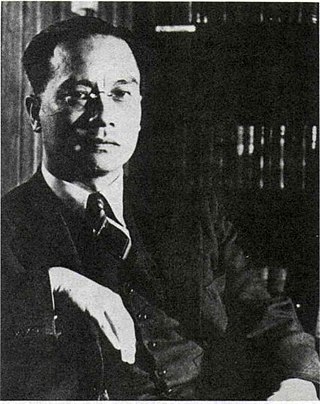
Kuo Zing-yang, was a Chinese experimental and physiological psychologist. He was a renowned educator and is also notable as having been the President of Zhejiang University, who was expelled by Zhejiang students in 1935.
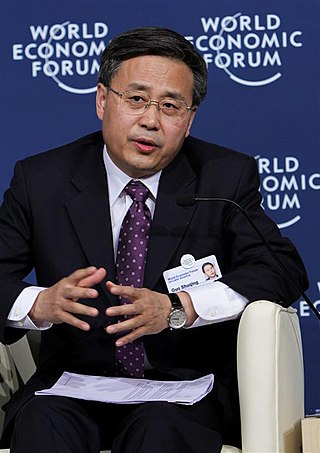
Guo Shuqing, also spelled as Kuo Shu-ching is a Chinese politician, banker, and financial regulator. He is currently serving as the chairman of the China Banking and Insurance Regulatory Commission.

Puff Kuo is a Taiwanese actress, singer, model, and was the youngest member of Taiwanese girl group Dream Girls until their disbandment.
Mao Zedong is a 2013 Chinese epic biographical television series which dramatises the life of Mao Zedong, former Chairman of the Chinese Communist Party and the main founder of the People's Republic of China. It was directed by Gao Xixi, and starred Tang Guoqiang, Liu Jing, Li Bowen, Guo Lianwen, and Wang Wufu. The television series was released in 2013 to mark the 120th anniversary of the birth of Mao Zedong.
Kuo Chin-fa was a Taiwanese singer.

Kuo Kuo-wen or Robert Kuo is a Taiwanese politician. He has served as secretary-general of the Taiwan Confederation of Trade Unions and Taiwan Labor Front, as well as a member of the Tainan City Council. He was appointed deputy minister of labor in 2016, and left the position in 2017. He was elected to the Legislative Yuan in March 2019.
The Fifth Moon Group, also known as the Fifth Moon Art Group, is a group of Chinese artists who pioneered the modern art movement in post-war Taiwan between the mid-1950s and the 1970s. Members of the group were born in Mainland China and later migrated to Taiwan. The heyday of the group came during the 1960s–70s, coinciding with the period of the Great Cultural Revolution in Mainland China. The Fifth Moon Group is closely related to and usually associated with the Eastern Painting Group (東方畫會) in membership, artistic works, and exhibitions.
Guo Jing is a Chinese women's rights activist, feminist activist, social worker, and book author based in Wuhan, Hubei Province, People’s Republic of China. She is known for writing Wuhan Lockdown Diary, a diary she wrote during the COVID-19 pandemic in Wuhan, China. Her work has appeared in or has been covered by The New York Times, The New Yorker, The Guardian, and BBC News among others. Her book, Wuhan Lockdown Diary, was published in March 2020 by Taiwan Linking Publishing Company (台湾联经出版社).
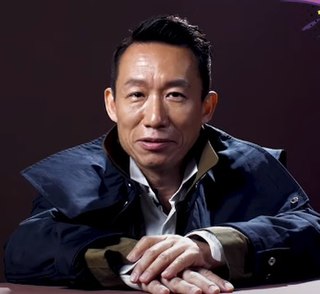
Kuo Tzu-chien is a Taiwanese comedian, host and actor.
Kuo Nan-hung was a Taiwanese politician who served as Minister of Transportation and Communications from 1987 to 1990.










